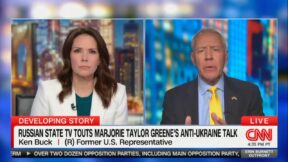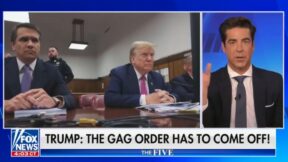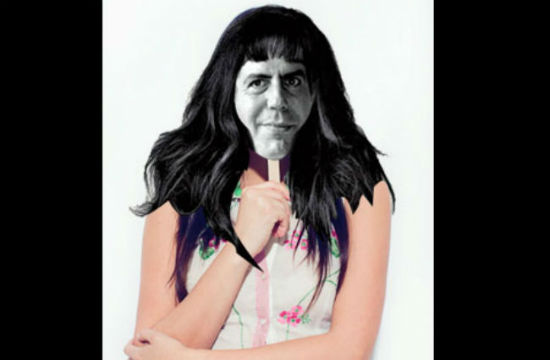Ruth Bourdain’s Creator Speaks: On Changing Phone Numbers, Food Humor, And ‘Its’ Gender
A few weeks ago, writer Josh Friedland dropped a bomb on the food world’s social media feed: he was the man behind Ruth Bourdain, a messed-up Twitter feed mashing the thoughts of Gourmet Magazine’s Ruth Reichl and surprise CNN journalist Anthony Bourdain. In the past, we’ve interviewed his evil twin (woman, man, “hermaphrodite — whatever you want”), but we recently got to interview a well-adjusted man with a young daughter and a respectable job, and asked him what it’s like pretending to be a food-obsessed lust monster.
The Braiser: Honestly, I can’t believe I’m actually talking to you and not hearing your voice through some weird modulator. How does it feel to finally be free of your anonymity?
Josh Friedland: It feels great; it feels kinda liberating. But you know what? It feel like it’s been forever now in internet time.
It’s been going on for like, what, two years?
Three years actually. 2009.
That’s forever in internet years. That’s like half a century.
It’s been hard bringing the secret out, because now I feel like I can come clean.
Were you actually at the James Beard Awards the year you won for humor? You worked for a well regarded food site at the time, so it would have been possible for you to attend the awards.
I could have covered it. I was at the chef awards, but I wasn’t at the journalism awards. I was home and putting my daughter to sleep in her room. I was just sitting there in the dark while she was falling asleep, and reading about it on Twitter.
That’s kinda evil of you on your end…
Evil?…I was feeling a little left out, honestly. I was really excited, but it was a weird sensation to get the recognition but to be all alone…I heard about it after, what it was like in the room, because I had no idea.
Have things changed for you much? Are you recognized in restaurants? Do people go, “Oh my god, you’re that mild-mannered man who created that twisted thing on the internet”?
If I actually looked like that avatar, then people might be like, “Look! There’s that person.”
Maybe you should just wear the wig.
Right, exactly. I haven’t been recognized yet.
But have your Twitter interactions changed since you came out?
Well, I’ve heard from lots of people. People have written to me, both friends and people I didn’t know. All sorts of different people have been in touch with me. But in terms of the reactions to the character?
Yeah. I read an article in The New Yorker about your coming-out, and they talked to another famous fake Twitter persona — the fake Rahm Emanuel guy [aka Dan Sinker]. He mentioned that it’s hard to sustain the parody of the character once the identity has been revealed, but I see you’ve kept tweeting. Has anything changed in the way people react to your tweets? Do you feel like your tweets have been different?
That’s the interesting thing. There’s the argument that says once you reveal yourself, you’re “dead” — you can’t do it anymore. The thing with that Rahm Emanuel guy is he did something interesting when the mayoral campaign ended — he went into another dimension [and] gave it a narrative conclusion. But I’m not sure.
On the one hand, anonymity was very important to establishing the character. Just for people to see the avatar, read the tweets, do the interactions on Twitter, and only be able to use their imagination for what they wanted. I think from the beginning if you knew who it was it would be a little different. Now that it’s established, I don’t know. I think at this point it’s really up to the audience…if I’m going to continue to write in that character’s voice, I don’t see a reason why it would change unless I got too self-conscious about the lewdness or obscenities. But it’s fun, so I’m not really worried about that. It is an “eyes of the beholder” kind of thing. I see people on Twitter saying to keep doing it, really encouraging, keep going, keep going — and then there are those people who say that it’s not funny anymore or you shouldn’t reveal yourself. The guy who wrote that article said I should be jailed or something.
That’s a really strong way to react to a fake Twitter account.
I think so. There are extremes. I can’t really take either view point too seriously, you know what I mean? At this point, I’m going to keep doing it as the whim kind of strikes. That’s how it actually started, anyways. I don’t see how it really needs to necessarily effect the voice. I can see how it might effect the reader, but as I said, now that it’s established. Maybe you’ve heard about DadBoner? That guy has been revealed and he’s continued to do it. There are other accounts out there who have done it.
And while I know this hops into a different field all together, the ultimate example [of sustained parody] is that everyone knows [TV host and satirist] Stephen Colbert isn’t the guy he pretends to be on camera.
Right, it’s the character. I feel like it’s untested waters. It’s not like we can look back at a long history of this. There were some risks in coming out, it could unleash all kinds of sentiments. I knew that going into it because as I said in The Times, I could do as most of what I could do with it. I was able to do a book, which was great. It wasn’t like, at this point, I was going to be jeopardizing that opportunity. After three years, doing this hiding, changing my cell phone numbers…
Wait, really?
Well do you remember when Ben Leventhal accused me [of being Ruth Bourdain]? I don’t know why, it didn’t make much sense, but somebody out there published my phone number on their Tumblr blog or something. But it was associated with other names, like with Adam Robb, who I don’t even know. People started calling me on my cell phone when that came out, so I changed my number.
Wow. It’s kinda funny, the length some people will go to unmask a fake Twitter handle of someone who’s writing parodies about food.
No, I know, I agree.
Food culture has blossomed to this point where it’s a lucrative, cultural phenomenon instead of just the thing that gives us sustenance and allows rich ladies to pass their time. It’s an actual cultural movement. I’d say you’ve broken ground in the concept of food satire. Where do you think it can go from here?
[laughs] I agree with you about everything you said, but the lucrative part. I think it’s culturally growing. I don’t know if it’s lucrative. It’s just like everything. Even when I started my blog, it was a novelty to have a food blog. My blog was different because it was covering food news and culture as opposed to Julia & Julia. Then it was novel when sites like yours or Grub Street or Eater would cover food daily. You know, the kind of resources a newspaper would put into it, on a daily basis. Even hourly.
I think it’s the same thing with humor. I think the date — I would count it lucky as being maybe one of the first people [to satirize food culture]. Otherwise you may have a little something on The Colbert Report or you might have it in The Onion. They can do funny food satire. I’m hoping that there’s going to be more opportunities for satire and humor. Obviously there’s people like Calvin Trillin. He’s not satire, but he definitely has an edge to how he talks about food. Twitter, obviously, because the nature of the internet, you have such narrow focus. I can spend all this time dedicated to just parodying two food personalities and food media…It’s the medium where you can proliferate. Before [the internet], who was going to publish it? You’re not gonna have Food & Wine publish it. A place like The Onion can do it, because they cover everything with that satirical lens.
Now that you’ve come out and now that you’ve seen the reaction to coming out, what are you going to do with Ruth Bourdain next?
I really don’t know, I’m going to be honest. I would be interested in doing more if there is interest in it. I did the book. I have ideas for more. And I’m just interested in this kind of writing. My other kinds of writing have been pretty straightforward, no humor or satire, so I would be interested in doing more even if it wasn’t about food.
Just regular, twisted things about any subject you take an interest in?
Yeah, exactly.
We really appreciate your horribly twisted mind, sir. We really do. It was a huge inspiration in the way we decided to take the tone of our website.
Wow, thank you very much.
Final question, from the source: is Ruth Bourdain a man or a woman?
That’s a good question. I always envisioned it as more of a woman. I leaned more “woman,” but I was always careful to use “his/her” and not get into gender. It could be I just thought thought it as being more of a woman.
But it’s more of a post-gendered construction?
Yeah, ultimately I was careful. I wanted it to be more of that, just in terms of how I thought of it as a character. But if you read the book, there are essays from basically Ruth Bourdain’s memoirs in the book.
I remember that! “Oh, this French man came up to me and started rubbing soppresatta all over my thighs.”
That could be a man, but I was seeing it as woman.
I’ve always wanted to know. Thank you.
Ok. But anything goes, if you want it to be a man that’s fine with me.
Well, we’ll imagine Ruth Bourdain as a projection of our own deeply-buried subconscious desires.
Exactly. If you want her to be a hermaphrodite — whatever you want.
[This interview has been edited and condensed for length.]
RELATED:
Breaking: Ruth Bourdain’s True Identity Revealed!
Where Food Meets Porn: Ruth Bourdain And 50 Shades Of Chicken Author F.L. Fowler Reveal All
Tweet Roundup: The Best Of @RuthBourdain
Have a tip we should know? tips@mediaite.com







